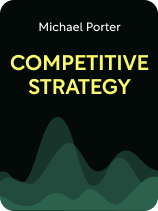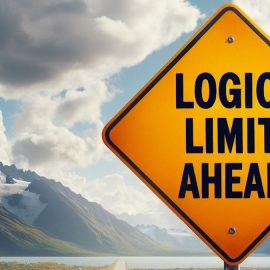

This article is an excerpt from the Shortform book guide to "Competitive Strategy" by Michael Porter. Shortform has the world's best summaries and analyses of books you should be reading.
Like this article? Sign up for a free trial here.
What’s the role of suppliers in marketing? How much influence do suppliers have over pricing?
In Competitive Strategy, Michael Porter explains that suppliers with substantial influence can dictate pricing, product quality, and availability. For example, in the diamond industry, a few large diamond mining companies exert significant influence over jewelry manufacturers and vendors by dictating prices, setting quality standards, and restricting sales.
Let’s look at the number of conditions that enhance supplier influence over a market.
Condition 1) Limited Supplier Competition With No Substitute Goods
According to Porter, when there are only a few suppliers in the market for a vital component, they have the power to dictate terms and conditions due to the absence of alternatives. (If a single pharmaceutical company manufactures a vital compound for a specific drug, it has the power to control the price and availability of that compound.)
(Shortform note: According to Thomas Sowell (Basic Economics), this market condition is commonly referred to as a monopoly or oligopoly. In the context of suppliers, monopolies occur when a single supplier gains exclusive control over a market, allowing it to set prices and dictate terms without facing significant competition. Oligopolies arise when a small number of large suppliers dominate the market, giving them considerable influence over pricing and limiting new suppliers from entering the market. Sowell notes that beyond having only a handful of companies setting terms and conditions, another major drawback of monopolies and oligopolies is the decrease in innovation due to the absence of competitive forces.)
Condition 2) Larger or More Profitable Markets’ Dependency on Suppliers
Porter argues that suppliers that cater to other larger or more profitable markets can exert influence in smaller or less profitable markets, as the latter rely on these suppliers while the suppliers themselves can thrive independently. (Suppliers of rare earth minerals hold a strong bargaining position because they experience significant demand from both the renewable energy market and the commercial electronics market.)
(Shortform note: You can uncover what other markets depend on your suppliers by conducting a supply chain analysis. This analysis involves mapping out the entire supply chain, from raw material sourcing to end-product delivery, and assessing the role of your suppliers within this ecosystem. This will provide insights into the interdependencies between your suppliers and other markets—which, in turn, will help you determine how critical your suppliers’ products or services are for the functioning of those other markets.)
Condition 3) High Costs Associated With Switching Suppliers
Porter explains that suppliers that have required businesses to invest in infrastructure modifications have more leverage because their clients are reluctant to invest in the further modifications that would be required if they were to switch suppliers. (A manufacturer that has customized production machinery to work with one supplier’s components would have to make costly infrastructure modifications to accommodate another supplier—putting the manufacturer at the mercy of their current supplier.)
(Shortform note: Ashlee Vance (Elon Musk) suggests a way to avoid high costs associated with switching suppliers: Manage key production processes and sourcing activities in-house. This involves allocating resources, establishing internal departments, and developing the necessary capabilities to effectively handle manufacturing and production functions internally. By adopting this approach, businesses can reduce their dependence on external suppliers while gaining greater flexibility and control over their supply chain and production process.)

———End of Preview———
Like what you just read? Read the rest of the world's best book summary and analysis of Michael Porter's "Competitive Strategy" at Shortform.
Here's what you'll find in our full Competitive Strategy summary:
- The groundbreaking book revolutionized the field of strategic management
- A guide for businesses seeking to achieve a competitive advantage
- How to anticipate and understand your competitors' strategies






